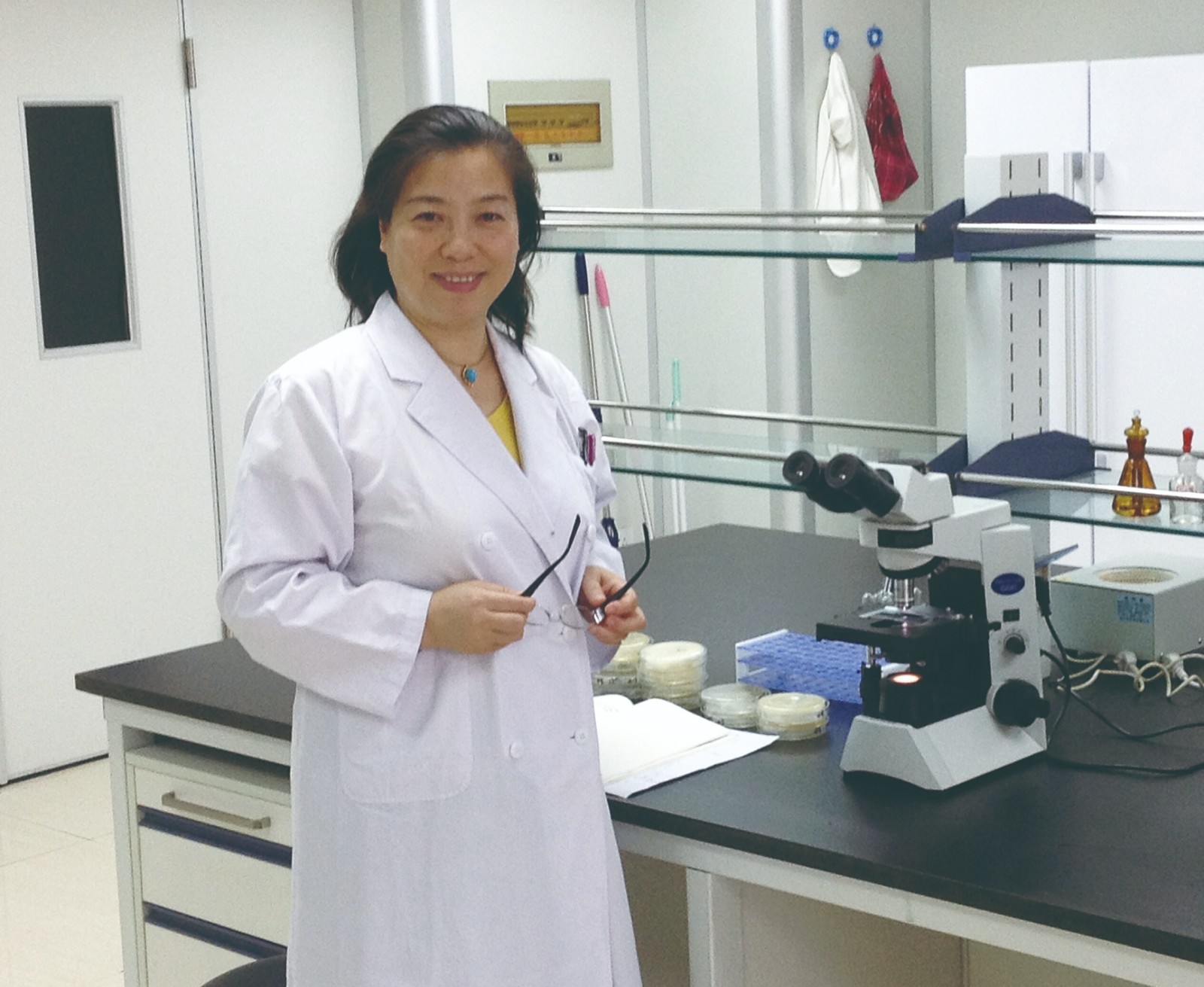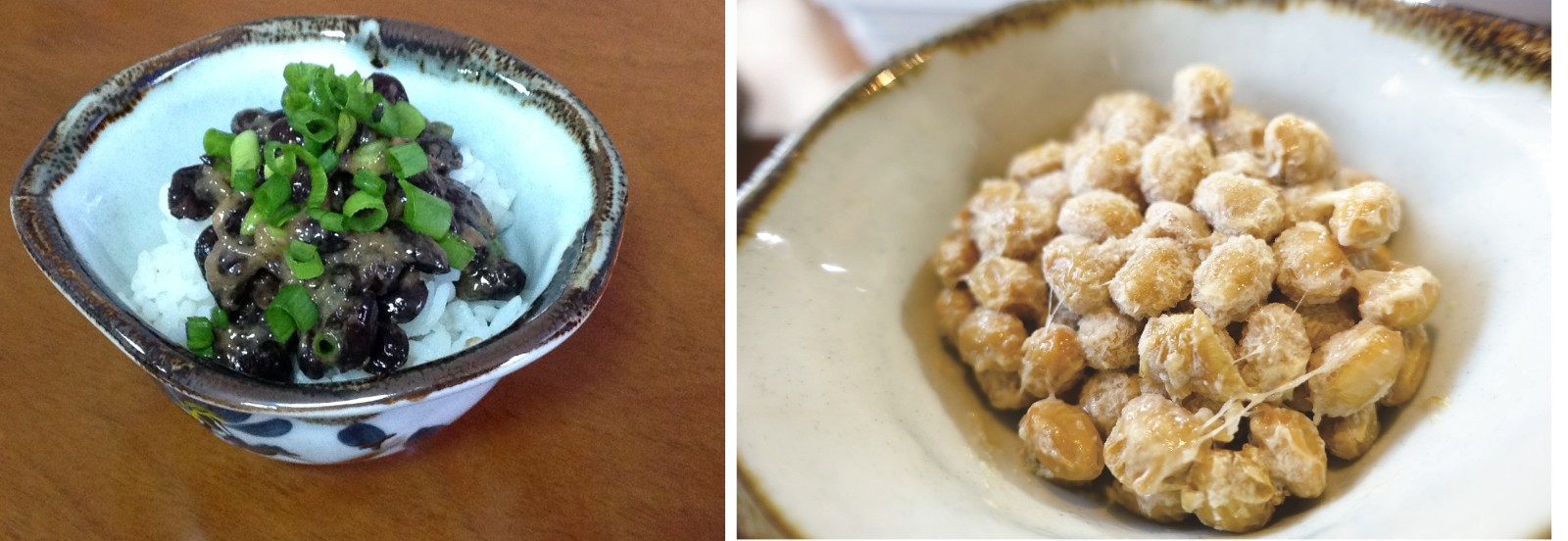DR. HU WEIMIN has a PhD in Bioengineering from the Tokyo University of Agriculture and Technology, and a postdoctoral fellowship in Medicine from the Japan Society for the Promotion of Science (JSPS). She studied under the tutelage of Professor Endo Akira, a winner of the Lasker Prize for World Clinical Medical Research for the discovery of statin drugs that paved the way for the prevention and treatment of coronary heart disease.
During her doctoral research, Dr. Hu discovered new highly active physiological substances SMTP-7 and SMTP-8 that can promote thrombolysis. She also determined the chemical structure of these substances and developed a method for making high-yield SMTP. In test tube experiments, the mechanism of action of these new physiologically active substances was analysed; in animal experiments, the non-toxic and thrombolytic physiological activity efficacy and cancer growth inhibitory effects of these substances were verified. This world-first discovery has won four Japanese patents, three of which have been authorised.

Dr. Hu Weimin, founder, of Weifang Qianyue Pharmaceutical Technology Co., Ltd
In 2009, Dr. Hu returned to China and founded Weifang Qianyue Pharmaceutical Technology Co., Ltd. Located in the National Biomedical Industrial Park of Weifang High-tech Zone, the company utilises the world's most advanced microbial application, fermentation and independent R&D of new drugs core technology. With the mission to improve the quality of life, Dr. Hu along with other R&D experts, tap the benefits of both traditional Chinese and western medicine to research and develop drugs, medicated meals, and other foods.
One of the series products independently studied and developed by the company is Qianyue natto. This product has passed the national SC production license certification, obtained a national patent, and was designated as a "special product for the International Kite Fair." This high-quality fermented food does not contain additives.
In this interview, Dr. Hu explains the commercial and health value of natto food.
In natto fermentation, what factors affect fermentation and how are these controlled?
Fermentation is a process in which organic matter is decomposed under the action of microorganisms. Under certain environmental conditions, microorganisms decompose and convert organic matter into useful substances, also known as direct metabolites or secondary metabolites. There are many factors that affect the fermentation process. The factors affecting natto fermentation mainly include: the vitality and purity of natto bacteria; the nutritional content of soybean raw materials, such as protein content; fermentation process, etc.
The raw material used for bacterial fermentation, like the medium of microorganism (bacteria), determines the final fermentation product of the bacterial species. For example, the protein content of soybean raw materials is high, and the amino acid, peptide, and enzyme content in soybeans are also high. The purity of the strains used for fermentation determines whether the correct fermentation metabolites can be produced. The natto bacteria used for fermentation are not pure and contain miscellaneous bacteria. Natto will ferment and metabolise the metabolites of miscellaneous bacteria, which cannot produce any health value – or can even be harmful – to the human body.
The fermentation process and the environmental factors of bacterial fermentation are also inseparable, including the temperature, humidity, oxygen, pH value required by the bacterial species, etc. The change of any one factor will affect the quality and quantity of the final fermentation product.
Therefore, in the production of natto, only by strictly controlling the raw materials, strains and fermentation process, and avoiding the entry of other factors in the fermentation environment, can the pure quality of the final metabolites be guaranteed.

Natto is fermented soybeans consumed for its health benefits. Fermentation enables the protein in the beans to decompose into a large number of amino acids and peptides that can help improve the immune system.
What methods are used for natto fermentation? What are the advantages of the fermentation method of Qianyue natto?
The most basic way of fermenting natto is the use of straw to wrap boiled soybeans for natural fermentation. In this method, it is easy to incorporate a large number of sundries and bacteria, but the flavour, quality and safety of the fermented natto are greatly reduced. With scientific progress and continuous process upgrades, modern fermentation methods allow fermentation in boxes or glass bottles; some large manufacturers of natto will also adopt the method of centralised fermentation in factories.
The fermentation method for Qianyue natto is to select purified high-purity natto bacteria strains, complete the inoculation and fermentation of the bacteria in the aseptic workshop, and according to the preferences of natto bacteria, use specially designed natto wrapping paper box (a national patent), that will prevent the production bad impurities and smell, and ensure the quality and safety of natto fermentation. Unlike some automated fermentation factories that follow constant temperature and constant fermentation procedures, our specialists will conduct the corresponding adjustments according to environmental changes during the fermentation process to guarantee the best state of natto fermentation.
Could you explain the packaging?
Qianyue natto has its own unique packaging. First, the box will ensure the activity of natto bacteria and the output of metabolites during the fermentation process of the product, which is an advantage in product preservation (a national patent). Secondly, to avoid environmental impact during transportation, a special thermal insulation bag, coupled with outsourced cardboard box, keeps the Qianyue natto safe and hygienic. It also guarantees the product quality even without additional temperature control measures such as ice packs.
What probiotic is found in natto? What substances are beneficial to the human body produced during the fermentation process?
Natto contains only one type of probiotic, the natto bacteria known as the king of bacteria. Bacillus natto can produce a large amount of enzymes and other metabolites in soybean fermentation. For example, Qianyue natto contains: natto bacteria, polyglutamic acid, vitamin K2, vitamin B group, amino acids, polypeptides, superoxide dismutase, catalase, protease, starch enzymes, lipases, nattokinase, biological polysaccharides, isoflavones, lecithin, dipicolinic acid, dietary fiber, saponins, small molecules, trace elements, etc.
Bacillus natto is a strong acid-resistant probiotic that remains active after it enters the stomach and passes through gastric acid. After entering the intestinal tract through the stomach, natto bacteria can inhibit and kill many spoilage bacteria in the intestinal tract, and help in the proliferation of probiotics such as bifidobacteria and lactic acid bacteria in the intestinal tract, and improve the intestinal micro-condition of the human body.
The human body needs corresponding enzymes to digest various nutrients, such as lipase to digest fat, amylase to digest starch, and protease to digest protein. The body itself also has many enzymes, but it is far from enough to maintain human health. Therefore, enzymes for digestion and metabolism need to rely on food supplements. Lack of corresponding enzymes may cause related digestive tract diseases and some metabolic diseases.
Soybeans will produce many biological enzymes after being inoculated and fermented by Bacillus natto after cooking. The fermented product, natto, helps the body digest and metabolise various foods and convert them into nutrients. Nattokinase contained in natto can help dissolve blood clots and prevent thrombosis. It is a kind of beneficial biological enzyme that is only contained in natto and is abundant. Nattokinase can assist in the treatment of some cardiovascular diseases. Regular consumption of natto by middle-aged and elderly people can prevent strokes and sudden cardiovascular diseases.
As a kind of beans, natto itself is rich in protein. After fermentation, the protein in beans will be decomposed into a large number of amino acids and peptides to help improve human immunity. Fermented natto is also rich in B vitamins, and vitamin K2 is also very rich in natto. Vitamin K2 can promote the absorption of calcium in food, and at the same time, after combining with human bone protein, it can generate bone density and strengthen human bone. For some middle-aged and elderly people, eating natto regularly can strengthen bone and prevent the risk of fractures caused by osteoporosis.
The application of active probiotics is very common in food. How does it improve the micro-environment of the intestinal tract and improve human health?
There are a variety of bacteria in the human gut, including many beneficial bacteria, as well as spoilage bacteria and other bacteria. When the human body's immunity is low, some common bacteria that usually do not have much impact on human health will become pathogenic bacteria, causing diseases. Active probiotics, especially Bacillus natto, can promote the proliferation of beneficial bacteria in the intestinal tract after entering the human body, and at the same time can inhibit the reproduction of pathogenic bacteria, and even directly kill pathogenic bacteria to maintain the balance of the intestinal microenvironment. After entering the intestinal tract, natto bacteria can improve the condition of the intestinal microenvironment, as well as improve the immune system.
What changes do you think modern food fermentation technology can bring to people's health in the future?
With the continuous development of life engineering, modern food fermentation technology will produce many changes in the field of life science in the future, and health will also undergo major changes. In the field of food, modern fermentation technology can produce many physiologically active substances with different health functions according to the health needs of the human body. In maintaining the balance of human intestinal microenvironment and assisting in the treatment of intestinal diseases, food fermentation technology has been used as an effective way to improve health.
In food production, fermentation technology can reduce some factors in food that are harmful to human health. Foods that have undergone fermentation produce many enzymes, which help degrade unfavourable factors in food, as well as help the human body digest and decompose many macromolecular nutrients and promote absorption.
*Translated from the article 活性益生菌纳豆食品的商业价值 which appears in China Food Manufacturing Journal (October 2021), and approved by its editor.














